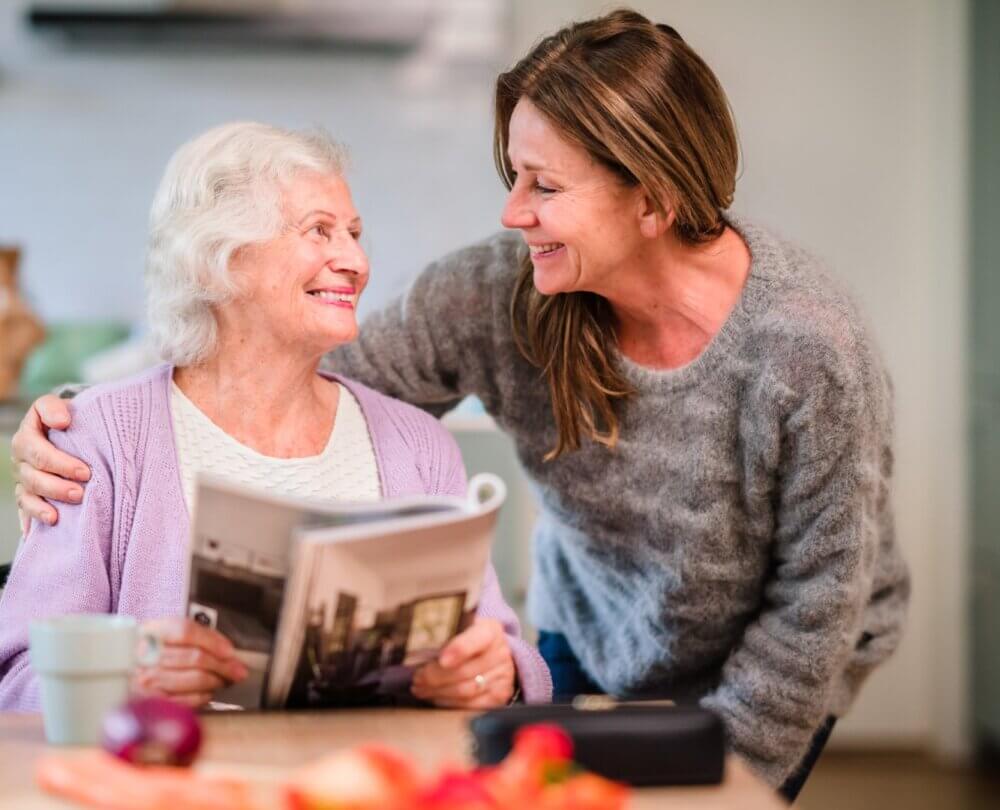Recognising the Signs That Your Older Loved Ones May Need Help at Home
Recognise signs your older loved ones need help and explore tailored home care services from Home Instead South Lanarkshire for independence and well-being.

Could Your Loved One Benefit from a Little Extra Support?
Spending time with an ageing parent or relative can bring joy and connection, but it may also reveal subtle changes in their behaviour or abilities. These changes can be a sign that they need additional help to maintain their independence and safety at home.
In this blog, we’ll explore how to recognise these signs, the benefits of home care, and how Home Instead South Lanarkshire can provide compassionate, professional support tailored to your loved one’s needs.

What Is Home Care, and How Can It Help?
Home care allows older adults to remain in the comfort and familiarity of their own homes while receiving the help they need. This can include assistance with daily tasks, personal care, household duties, and even specialised support for conditions such as dementia.
At Home Instead South Lanarkshire, we understand that every individual is unique, which is why our services are designed to meet specific needs while promoting independence and dignity.
Some key aspects of home care include:
- Daily Living Assistance: Helping with tasks like washing, dressing, and meal preparation.
- Personal Care: Supporting individuals with medication, incontinence care, and mobility challenges.
- Household Tasks: Ensuring a safe and tidy home environment through cleaning, laundry, and organising.
- Specialised Support: Providing expert care for individuals with dementia or other long-term health conditions.

Signs Your Loved One May Need Extra Help
Identifying when an ageing loved one could benefit from home care isn’t always straightforward. By looking out for certain physical, emotional, and behavioural changes, you can take steps to support their well-being.
1. Mobility Challenges and Increased Falls
Mobility issues are common as people age, and they can lead to an increased risk of falls. According to NHS data, one in three adults over 65 will experience a fall each year.
Signs to watch for:
- Unexplained cuts or bruises.
- Reluctance to move around independently.
- Difficulty standing or maintaining balance.
Home carers can assist with mobility, ensuring your loved one feels secure and confident in their movements.
2. Memory Problems
Occasional forgetfulness is normal, but more frequent memory lapses could indicate the early stages of dementia.
Signs to watch for:
- Regularly misplacing items or forgetting names.
- Struggling to navigate familiar routes.
- Leaving appliances on or forgetting to eat meals.
Specialised dementia care at home can help keep your loved one safe while offering the tailored support they need.
- Changes in Personality or Mood
Loneliness, grief, or health conditions can significantly impact emotional well-being. These feelings might manifest as mood swings, irritability, or withdrawal from social activities.
Signs to watch for:
- Uncharacteristic moodiness or frustration.
- A loss of interest in hobbies or seeing friends.
- Symptoms of anxiety or depression.
Having regular visits from a compassionate carer can provide companionship and improve emotional health.
4. Neglect of Personal Hygiene
Struggling with grooming or self-care can be a sign that daily tasks have become overwhelming.
Signs to watch for:
- Wearing unwashed or inappropriate clothing.
- Noticeable changes in appearance or weight.
- A lack of basic hygiene.
Professional carers can assist with these tasks, helping your loved one maintain their dignity and confidence.
5. Household Clutter or Neglect
A cluttered or disorganised home could indicate difficulty managing household tasks.
Signs to watch for:
- Unopened post stacking up.
- Dirty dishes or an unkempt living space.
- Unsafe conditions like tripping hazards or spoiled food in the fridge.
Home care services can help maintain a clean and safe environment for your loved one.

How to Arrange Home Care
Taking proactive steps to arrange home care can significantly improve your situation if you’ve noticed any of these signs. Here’s how to get started:
- Reach Out to a Provider: Contact a trusted service like Home Instead South Lanarkshire to discuss your loved one’s specific needs.
- Book an Assessment: Many providers offer a free home consultation to assess care requirements and recommend a tailored plan.
- Explore Additional Options: Consider services such as live-in care or specialised dementia support to enhance your loved one’s safety and independence.

Choosing the Right Home Care Provider
Finding the best provider for your loved one is crucial to ensure their needs are met with compassion and professionalism. When researching options, focus on:
- Reputation: Look for reviews and testimonials from other families.
- Services Offered: Ensure the provider can cater to specific needs, such as mobility assistance or dementia care.
- Qualified Carers: Verify that the staff are fully trained and experienced in providing the necessary support.

Why Choose Home Care Over a Residential Facility?
Home care offers numerous benefits compared to moving into a care home:
- Familiarity: Remaining in a known environment can ease stress and improve mental well-being.
- Cost-Effectiveness: For couples, live-in care is often more affordable than two separate care home placements.
- Personal Attention: One-on-one care ensures individual needs are met with sensitivity and respect.

Supporting Families and Loved Ones in South Lanarkshire
At Home Instead South Lanarkshire, we believe that high-quality care goes beyond physical assistance. Our carers provide emotional support, companionship, and peace of mind for both clients and their families.
Whether your loved one needs help with daily tasks, companionship, or more complex care, our tailored services are designed to support their independence and well-being.
Final Thoughts
Recognising the signs that your older loved one may need help at home is an important step in ensuring their safety and happiness. By addressing these needs early, you can help them maintain their independence and quality of life.
If you’re ready to learn more about how Home Instead South Lanarkshire can support your family, we’re here to help. Contact us today to arrange a consultation and take the first step towards compassionate, personalised care.
